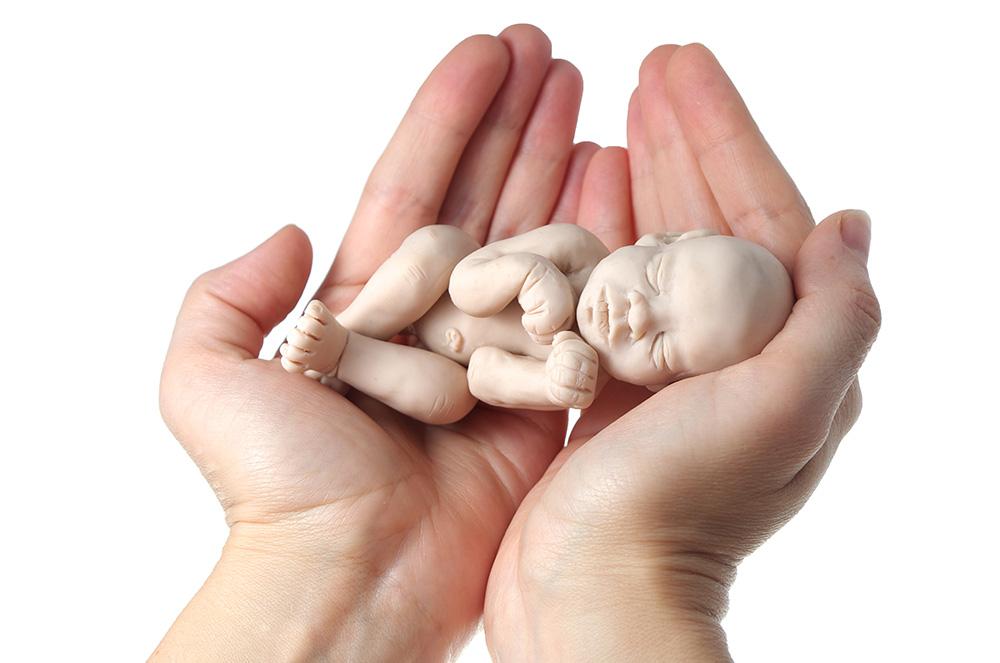
Morality of Abortion
Introduction
The ethics of abortion relate to the question of whether the deliberate termination of pregnancy prematurely is right or wrong. Different people support either side of the argument, while some have no stand on the issue. Those opposing its morality base their arguments on the value of the child’s life. Those supporting abortion base their arguments on the right of the mother to use her body with discretion and her right to life. Despite the various points of view regarding abortion, it is unethical and immoral.
Abortion is immoral irrespective of the rationale for undertaking it. Abortion involves the loss of life of the unborn child. The child deserves to live, and other people should not be given absolute right to determine whether a fetus should live or die (Boonin, 2003). Killing a person is immoral in almost all societies around the world. People who kill others, thereby denying them the right to live are treated harshly by the society in general. The harsh treatment of the perpetrators is meant to punish them for their wrongdoing and to deter others from committing such a wrong. This shows that it is generally accepted that killing, irrespective of the motive behind, is wrong. Therefore, since no person should determine when another should die, the fetus, which is a potential human being, should be accorded the same right to live.
Abortion leads to excessive pain and suffering of the unborn child. The unborn child did not decide to be conceived but is found existing. This means that other people were responsible for its conception, either willingly or unwillingly. While the pregnancy could have resulted from rape or other unhealthy sexual behaviors, killing the unborn child does not make it right (Hurley, 2001). The unborn child is innocent and has no idea that some unhealthy behaviors, such as incest, may have been involved. Therefore, killing the unborn child, while the child did not contribute to its conception, is cruelty of the highest level. Since other people contributed to the conception, which led to the existence of the unborn child, it should be assured its rights and protection against torture and suffering. The suffering that the mother may experience if the child resulted from an unhealthy relationship should be solved through other means apart from abortion. The mother should let the child be born and then give the child away for adoption. This is a lesser evil than aborting the child.
Those who support abortion argue that there are circumstances that may require an abortion to be carried out. Such circumstances include when the mother of the unborn child is in danger due to her pregnancy. It is true that such circumstances may arise where a mother of the unborn child should be saved from death. By all means, the mother of the unborn child should be saved (Kaczor, 2011). In such circumstances, doctors have to decide whom to save between the two. Those who support abortion argue that the mother’s life should be saved. The only way to save the mother is through abortion, which means that it is justifiable under these circumstances to terminate the pregnancy.
Another argument advanced by those who support abortion is that mothers of unborn children have the right to do whatever they want with their bodies. Therefore, portraying abortion as immoral is a violation of the mothers’ right to use their bodies the way they deem best. Like other rights, the mothers of the unborn children should be given freedom to make decisions regarding their bodies (Watkins, 2005). The unborn children fall within the definition of the mothers’ bodies, because the babies are a part of their mothers. When mothers decide to terminate pregnancy, they must have good reasons to do so, based on either the circumstances that led to pregnancy or the repercussions of the child being born. Therefore, they should have exclusive rights to decide what to do with their bodies.
Conclusion
Irrespective of counterarguments offered by those supporting abortion, abortion is simply immoral. The argument that sometimes abortion is morally right when the mother of the unborn child is in danger is faulty. Although it is morally right to save the mother of the unborn child, the act of saving does not make abortion right, because it involves the loss of life of the unborn child. In this circumstance, abortion becomes immoral, because doctors have to decide whose life to save. The decision to terminate pregnancy to save the mother is usually influenced by the mother’s family or the doctors’ rationality. The unborn child may be disadvantaged, because it cannot defend its right to be saved and no one is there to defend it. Therefore, abortion on the basis of saving the mother does not make it right although saving the mother’s life is a moral act.
The second justification of abortion advanced by its supporters lies in the fact that the mother has the right to use her body the way she likes, including pregnancy termination. However, the right of the child to live is more important than that of the mother to use her body with discretion, since life is more valuable than the mere right to use one’s body. Therefore, abortion is immoral irrespective of the counterarguments advanced by its supporters, because it involves ending innocent lives.
References
Boonin, D. (2003). A defense of abortion. Cambridge: Cambridge University Press.
Hurley, J. A. (2001). The ethics of abortion. San Diego: Greenhaven Press.
Kaczor, C. R. (2011). The ethics of abortion: women's rights, human life, and the question of justice. New York: Routledge.
Watkins, C. (2005). The ethics of abortion. Detroit: Thomas Gale.




